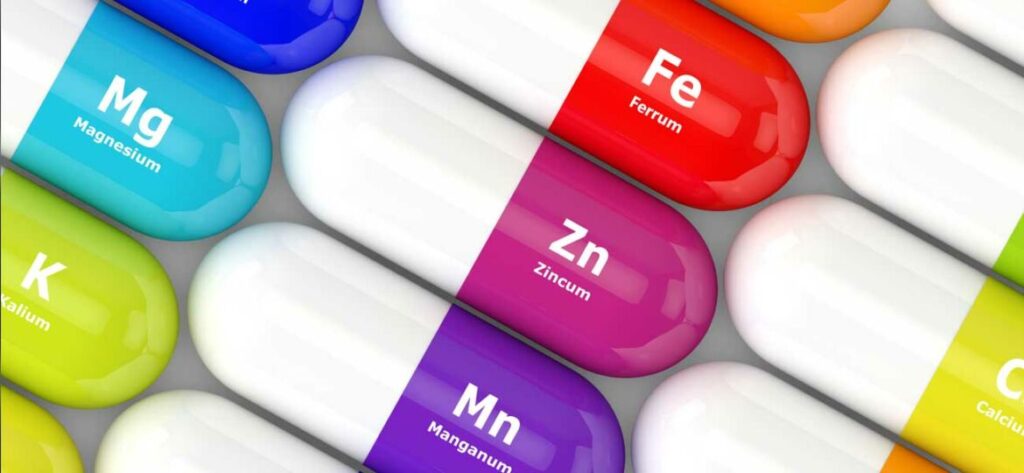Introduction
In today’s fast-paced world, mental health and cognitive function are of utmost importance. Many individuals are looking for ways to enhance their brain power and improve their overall mental well-being. One approach that has gained significant attention is the use of supplementation. In this article, we will explore the link between supplementation and mental health, discussing the potential benefits, popular supplements, and important considerations.

Understanding the Importance of Brain Health
The brain serves as the remarkable control center of our body, orchestrating various complex functions essential for our everyday lives. From cognition and memory to emotions and decision-making, the brain plays a crucial role in shaping our experiences and overall well-being. Maintaining optimal brain health is therefore paramount, as it directly impacts our quality of life and ability to thrive in the modern world.
The Role of Supplementation in Cognitive Enhancement
The Science Behind Supplementation
In recent years, scientific research has shed light on the remarkable influence of specific nutrients and compounds on brain function and cognitive abilities. These findings have led to the development of brain-boosting supplements, which aim to deliver concentrated forms of essential nutrients that support and enhance brain health. By providing these nutrients in targeted amounts, supplementation offers a promising avenue for improving cognitive performance and mental well-being.
Key Nutrients for Brain Health
Several key nutrients have emerged as vital players in promoting optimal brain health. These nutrients serve diverse roles in maintaining the intricate balance of brain function. Let’s delve into some of the essential nutrients that contribute to the well-being of our cognitive powerhouse:
Omega-3 Fatty Acids
Omega-3 fatty acids, particularly docosahexaenoic acid (DHA) and eicosapentaenoic acid (EPA), stand out as fundamental components for supporting brain health. These healthy fats are crucial for the formation and maintenance of brain cell membranes, ensuring their integrity and facilitating optimal communication between brain cells. Additionally, omega-3 fatty acids play a vital role in supporting neurotransmitter function, the chemical messengers responsible for transmitting signals within the brain.
Vitamin B Complex
The family of B vitamins, including B6, B9 (folate), and B12, emerges as a group of key players in cognitive function. These vitamins actively participate in the production of neurotransmitters, which are essential for transmitting messages throughout the brain. By facilitating neurotransmitter synthesis, B vitamins contribute to various cognitive processes such as memory formation, attention, and overall brain performance.
Balanced Diet and Regular Exercise
A well-balanced diet forms the foundation of optimal brain health. Include a wide range of nutrient-dense foods such as fruits, vegetables, whole grains, lean proteins, and healthy fats in your meals. These foods provide essential nutrients that support brain function and nourish your cognitive abilities. Additionally, regular exercise contributes to enhanced blood flow to the brain, promoting neuroplasticity and improving cognitive function. If you don’t prioritize regular exercise, you might inadvertently compromise your health, potentially leading to the need for medical interventions such as gastric sleeve surgery.

Mindfulness Practices
Practicing mindfulness techniques, such as meditation, deep breathing exercises, or yoga, can significantly impact mental well-being. These practices help reduce stress levels, increase self-awareness, and improve focus and attention. By incorporating mindfulness into your daily routine, you can create a conducive environment for optimal cognitive function and mental clarity.
Quality Sleep
Adequate sleep is vital for brain health and cognitive performance. During sleep, the brain undergoes essential processes that consolidate memories, repair and regenerate cells, and regulate neurotransmitter levels. As sleep is essential for brain health and cognitive function, Colorado shutters can optimize your rest by managing external factors that affect sleep quality. This leads to refreshing mornings and renewed energy for the day ahead.
Aim for 7-9 hours of quality sleep each night to provide your brain with the rest it needs to function optimally. Considering the installation of window shutters in Utah – this can create a conducive environment that helps regulate light and noise, promoting better sleep hygiene and supporting your commitment to a healthier lifestyle.
Mental Stimulation and Cognitive Training
Engaging in mentally stimulating activities is a fantastic way to keep your brain sharp and enhance cognitive abilities. Read books, solve puzzles, learn a new skill, or engage in hobbies that challenge your brain. These activities promote neuroplasticity, strengthen neural connections, and support long-term brain health.
In conclusion, the link between supplementation and mental health provides a promising avenue for individuals seeking to boost their brain power and enhance cognitive function. Key nutrients found in brain-boosting supplements, such as omega-3 fatty acids and B vitamins, play vital roles in supporting brain health and cognitive abilities. However, it is essential to consider supplementation as part of a holistic approach that incorporates a balanced diet, regular exercise, mindfulness practices, quality sleep, and mental stimulation. By adopting these strategies, individuals can optimize their mental well-being and unlock their full cognitive potential. If you’re looking to embrace such a comprehensive approach, it’s advisably to explore home health care options in Dallas, TX, where professional assistance can support your journey towards holistic mental and physical well-being.
Incorporating brain-boosting supplements into your lifestyle is just one piece of the puzzle when it comes to optimizing your mental health and cognitive function. To further enhance your brain power and overall well-being, consider the following strategies:
1. Stay Hydrated
Proper hydration is crucial for optimal brain function. Dehydration can lead to cognitive impairments, difficulty concentrating, and fatigue. Make sure to drink an adequate amount of water throughout the day to keep your brain hydrated and functioning at its best. Dehydration can have far-reaching effects on other aspects of your body, such as causing skin dehydration or contributing to cellulite formation. In such cases, you might consider qwo cellulite treatment in San Antonio as a potential solution to address these concerns and maintain your overall well-being
2. Manage Stress
Chronic stress can have detrimental effects on your brain health and mental well-being. Find healthy ways to manage stress, such as practicing relaxation techniques, engaging in physical exercise, or seeking support from a therapist or counselor. By effectively managing stress, you can improve your cognitive abilities and protect your brain from the harmful effects of chronic stress. If your job is causing significant stress, it might be wise to explore business exit solutions and strategies to create a more balanced professional journey.
3. Socialize and Stay Active
Maintaining an active social life and engaging in regular social activities can significantly benefit your mental health and cognitive function. Social interaction stimulates the brain, improves mood, and enhances cognitive abilities. Make time to connect with friends, join clubs or organizations, and participate in group activities that stimulate your mind and foster social connections. Similarly, enjoying shared meals, including dinner together with delicious desert edible gummies, can enhance both the social and sensory aspects of your interactions.
4. Limit Screen Time
Excessive screen time, whether it’s from smartphones, computers, or televisions, can negatively impact cognitive function. Prolonged exposure to screens can lead to mental fatigue, decreased attention span, and disrupted sleep patterns. Set boundaries for your screen time and take regular breaks to give your brain a chance to rest and recharge. Consider reducing time spent on certain primary apps – for some, it could be a Bass fishing app, while for others, it might involve different applications.
In case you face technical issues with your devices, seeking laptop repair services in Seattle is a viable option. Moreover, the professionals at these services can also provide valuable assistance in setting limits to apps if you’re unsure about how to do it effectively.
5. Practice Brain-Boosting Activities
Engaging in activities specifically designed to boost brain function can be highly beneficial. Puzzles, brainteasers, crosswords, and memory games are excellent examples of activities that challenge your brain and promote cognitive abilities. Set aside time each day or week to participate in these brain-boosting activities to keep your mind sharp, while you spend your free time enjoying something relaxing, like visiting a smoke shop to unwind and recharge.
If you’re on the lookout for a neighborhood that appreciates these enjoyable activities and regularly hosts events like memory game nights or puzzle nights, consider exploring homes for sale in San Ramon.
Exploring the Link Between Supplementation and Mental Health
Understanding the relationship between supplementation and mental health is a complex and fascinating endeavor. Numerous studies have delved into this topic, aiming to uncover the potential benefits and mechanisms through which supplementation can positively impact our mental well-being. Let’s explore the key findings and insights from this research.

The Impact on Memory and Cognitive Function
One of the primary areas of interest when it comes to the link between supplementation and mental health is memory and cognitive function. Several nutrients and compounds found in brain-boosting supplements have been shown to enhance memory, improve focus, and support overall cognitive abilities.
Omega-3 fatty acids, for example, have demonstrated promising effects on memory and cognitive function. Research suggests that these essential fats play a vital role in the structure and function of brain cell membranes, helping to maintain their integrity and facilitate optimal communication between neurons. By supporting the health of brain cells, omega-3 fatty acids may enhance memory formation, retrieval, and overall cognitive performance.
Another nutrient that has garnered significant attention is vitamin B complex. B vitamins are involved in various processes within the brain, including neurotransmitter synthesis, energy production, and DNA repair. Deficiencies in B vitamins have been linked to cognitive impairments and mood disturbances. By supplementing with vitamin B complex, individuals may improve memory, enhance mental clarity, and boost overall brain function.
Furthermore, certain antioxidants, such as vitamin E and resveratrol, have shown promise in preserving cognitive function and protecting against age-related cognitive decline. These antioxidants help combat oxidative stress, a process that can damage brain cells and impair cognitive abilities. By reducing oxidative damage, supplementation with antioxidants may support cognitive function and promote healthy brain aging.
The Influence on Mood and Emotional Well-being
In addition to memory and cognitive function, supplementation has been explored for its potential impact on mood and emotional well-being. Mental health conditions such as depression, anxiety, and stress can significantly affect our quality of life and cognitive abilities. Since sleep also plays a crucial role in this aspect, considering the use of sleepy time tracks, because they can complement the benefits of supplementation in promoting emotional well-being. Therefore, identifying strategies to support mental well-being is of utmost importance.
Certain supplements, such as omega-3 fatty acids and herbal extracts like ginseng, have been investigated for their potential mood-enhancing properties. Omega-3 fatty acids, in particular, have shown promise in alleviating symptoms of depression and anxiety. These essential fats play a crucial role in the structure and function of brain cells, influencing the production of neurotransmitters involved in mood regulation. By supporting the optimal functioning of these neurotransmitters, omega-3 fatty acids may help improve mood, reduce symptoms of depression, and enhance emotional well-being.
Ginseng, an adaptogenic herb, has long been used in traditional medicine for its potential to boost energy levels, reduce stress, and enhance cognitive function. Studies have suggested that ginseng may have mood-enhancing effects, promoting feelings of calmness, reducing anxiety, and improving overall mental well-being. While the exact mechanisms behind these effects are not fully understood, it is believed that ginseng’s influence on neurotransmitters and stress response pathways contributes to its mood-regulating properties.
The Role in Stress and Anxiety Reduction
Chronic stress and anxiety can have a profound impact on mental health, cognitive function, and overall well-being. Supplementation has been investigated as a potential tool for managing stress and reducing anxiety levels.
Everyday life and work often bring about increased stress. This can become even more pronounced during important events like weddings. To manage this, it’s important to find ways to lower stress levels. Making choices to ease stress, like opting for an Atlanta wedding limo service, while also investigating supplementation as a potential tool, can help ease worries and make important occasions go more smoothly.
One notable nutrient in this regard is magnesium. Magnesium is involved in over 300 biochemical reactions in the body, including those related to brain function and stress response. This essential mineral has calming properties, acting as a natural relaxant and helping to regulate the release of stress hormones. By supplementing with magnesium, individuals may experience a reduction in stress levels, improved relaxation, and enhanced resilience in the face of stressful situations. If you’re finding yourself thinking, “I want to sell my house in Bethlehem, PA,” but the process feels stressful, considering the potential benefits of magnesium supplementation.
Moreover, certain herbal supplements, such as chamomile and lavender, have been studied for their anxiolytic effects. These herbs contain compounds that interact with receptors in the brain, promoting relaxation, reducing anxiety symptoms, and improving sleep quality. While further research is needed to fully understand the mechanisms behind these effects, preliminary studies have shown promising results, highlighting the potential of supplementation in managing stress and anxiety.
Considering Individual Factors and Personalized Approaches
It is important to note that the effects of supplementation on mental health can vary among individuals. Factors such as genetics, lifestyle choices, overall health, and medication use can influence the response to supplementation. Therefore, it is crucial to approach supplementation with a personalized mindset, taking into account individual needs, goals, and potential interactions with medications or pre-existing conditions. This approach aligns with choosing a car from a car rental in Belgrade, as similar considerations involving lifestyle, preferences, and practicality should guide your decision-making process to ensure a satisfying experience.
Before incorporating any supplements into your routine, it is advisable to consult with a healthcare professional or qualified nutritionist. They can provide personalized guidance based on your unique circumstances and help you make informed decisions regarding supplementation and mental health. If you’re seeking professional advice, you can consider visiting a hospital in Mexicali for expert assistance and comprehensive healthcare services that prioritize your well-being and peace of mind.

In conclusion, the link between supplementation and mental health holds significant promise. Nutrients and compounds found in brain-boosting supplements have demonstrated potential benefits for memory, cognitive function, mood regulation, and stress reduction. While more research is needed to fully understand the mechanisms and optimize supplementation approaches, these findings open doors for exploring new strategies to support mental well-being and optimize cognitive performance.
Conclusion
Boosting brain power and improving mental health is a journey that involves multiple factors, including supplementation, lifestyle choices, and overall well-being. While brain-boosting supplements can provide valuable nutrients and support cognitive function, it’s crucial to approach brain health holistically. By incorporating a balanced diet, regular exercise, mindfulness practices, quality sleep, and mental stimulation into your lifestyle, you can optimize your brain power and enhance your mental well-being.
Remember, everyone’s brain is unique, and what works for one person may not work for another. It’s important to listen to your body, consult with healthcare professionals if needed, and make informed choices that align with your specific needs and goals. By prioritizing brain health, you can unlock your full cognitive potential and enjoy a sharper mind, improved memory, and enhanced mental clarity.


